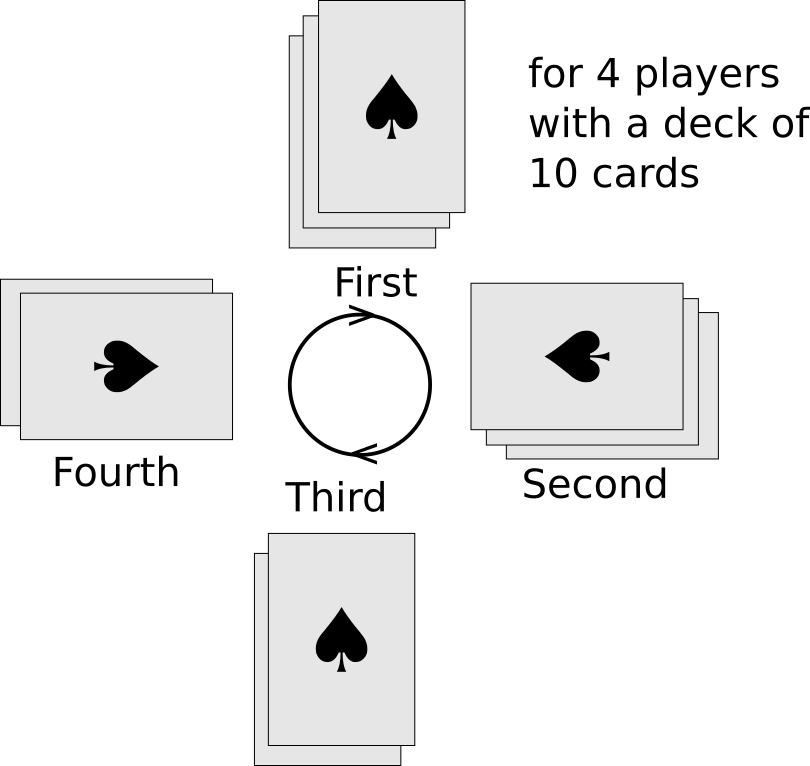Tonight is card game night! You are the dealer and your task is to write a program to deal the cards to the players.
Given an array of cards and the number of players, you need to split the array of cards into a hand for each player.
Rules
Your program will receive an non-empty array A , as well as a non-zero positive integer n. The array should then be split into n hands. If the length of the string isn't divisible by n any leftover cards at the end should be distributed as evenly as possible.
If
n==1, you will need to return an array of array withAas it's only elementIf
nis greater than the length ofA, you will need to return every hand and an empty hand. ifn = 4andarray A = [1,2,3], you should return[[1],[2],[3]]or[[1],[2],[3],[]]. You are free to handle the empty hand with empty, undefined or null.The array can contain any type rather than a number.
You should not change the order of the array while dealing. For example
if n = 2andA= [1,2,3], any result rather than[[1,3],[2]]will be invalid.
Test Cases
n A Output
1 [1,2,3,4,5,6] [[1,2,3,4,5,6]]
2 [1,2,3,4,5,6] [[1,3,5],[2,4,6]]
3 [1,2,3,4,5,6] [[1,4],[2,5],[3,6]]
4 [1,2,3,4,5,6] [[1,5],[2,6],[3],[4]]
7 [1,2,3,4,5,6] [[1],[2],[3],[4],[5],[6]] // or [[1],[2],[3],[4],[5],[6],[]]
Demo Program
def deal(cards, n):
i = 0
players = [[] for _ in range(n)]
for card in cards:
players[i % n].append(card)
i += 1
return players
hands = deal([1,2,3,4,5,6], 2)
print(hands)
This is code-golf, so you the shortest bytes of each language will be the winner.
Inspired from Create chunks from array by chau giang


0? \$\endgroup\$